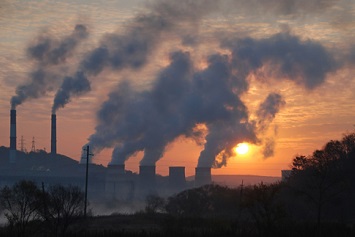The COVID-19 pandemic may be restricting travel, access, and safety for personnel who perform required Clean Air Act (CAA) monitoring and related tasks at power plants. Accordingly, the EPA has issued an interim final rule that provides flexibility intended to cut compliance costs under three 40 CFR Part 75 programs: the Acid Rain Program, the Cross-State Air Pollution Rule (CSAPR), and/or the NOX SIP Call.
During the crisis and when virus-related conditions dictate, the interim action allows owners and operators to report actual monitored data instead of the substitute data that are typically required when monitoring and testing requirements are not completed in a timely manner.
Part 75
The Part 75 regulations require affected sources to continuously monitor emissions and other data for every operating hour in a control period and also to conduct a variety of periodic or event-driven tests to ensure the high quality of the reported data. In addition, Part 75 requires sources to report substitute data instead of actual monitored data for operating hours when a required test has not been completed by a specified deadline. Substitute data are conservative—that is, they comprise emissions that are typically higher than those that would result from an actual test. The data become increasingly high-biased over time and ultimately may be as high as a unit’s maximum potential emissions. In the context of the Part 75 programs, this means that owners/operators may face higher costs to acquire more emissions allowances to ensure compliance. The sources must continue reporting substitute data until the delayed test is successfully completed.
Outside Contractors
In the interim final rule, the EPA states that while affected sources typically perform Part 75 continuous monitoring activities using highly automated monitoring systems overseen by plant staff, most sources conduct certain required Part 75 tests using outside contractor personnel. Some tests also require calibration gases to be obtained from outside facilities or require fuel samples to be analyzed at outside laboratories.
“Consequently, current travel, plant access, and other safety restrictions related to the COVID-19 emergency, as well as shutdowns of external facilities that provide necessary supplies or services, may make compliance with Part 75 testing requirements difficult for some sources,” says the EPA. “Moreover, because of uncertainty regarding the duration of the restrictions and because tests requiring outside contractor personnel often must be scheduled months in advance, operators missing test deadlines now face considerable uncertainty as to when they will be able to reschedule and complete any delayed tests.”
Actual Monitored Data
The interim final rule allows owners/operators to report actual monitored data instead of substitute data. Actual monitored data are data collected from the most recent previously approved analyses or tests. The major benefit of using actual monitored data instead of substitute data is that owners/operators will not be forced to purchase allowances for emissions that do not occur. The rule requires that owners/operators maintain records documenting the reasons for failure to complete by the applicable deadline each required test or analysis and demonstrating that such failure is caused by travel, plant access, or other safety restrictions implemented to address the COVID-19 national emergency.
Based on previous reports, the EPA believes the flexibilities provided through the interim final rule potentially impact over 1,000 electric generating units (EGUs), as well as large non-EGU boilers and combustion turbines, that have test deadlines in April, May, and June of 2020. The potentially affected units are in 20 states and the District of Columbia.
Reporting Not Suspended
The interim final rule does not suspend any existing requirements for any affected unit to report emissions for any hour of operation and does not alter any existing emissions limitations under any program.
“The EPA consequently has no reason to expect the rule’s amendments to the Part 75 quality-assurance requirements to cause any change in affected units’ emissions behavior,” the Agency states. “The rule therefore will not result in any harm to public health or the environment that might occur from increased emissions. To the extent that the amendments facilitate plant operators’ efforts to comply with travel, plant access, and other safety restrictions imposed to protect public health during the COVID-19 emergency, the amendments will have a positive impact on public health by assisting efforts to slow the spread of the disease.”
The amended requirements apply until the required tests can be completed but no longer than the duration of the COVID-19 national emergency plus a grace period of 60 days to complete delayed tests and no later than the date of expiration of the amendments.

